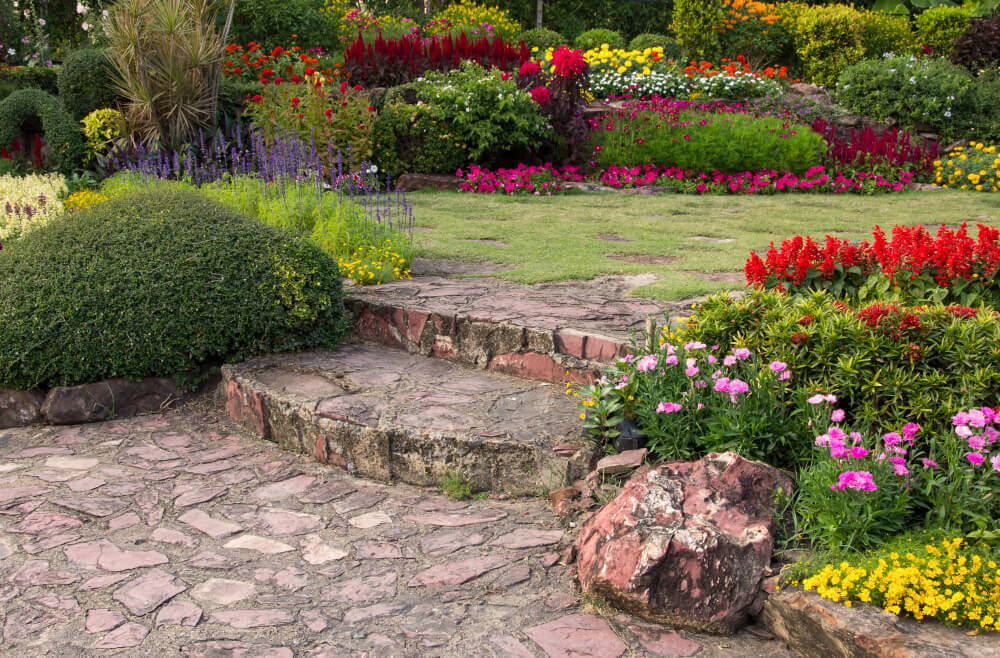Beautiful Plants For Your Interior

Are you a Houston homeowner looking to save water and create a beautiful landscape? Look no further! In this article, we will explore some true and effective water-saving landscaping tips specifically designed for Houston homes.
By following these simple yet impactful suggestions, you can conserve water while still enjoying a lush and vibrant outdoor space.
Firstly, we will discuss the importance of choosing drought-tolerant plants that can thrive in Houston’s hot and dry climate.
Then, we will delve into the implementation of efficient irrigation systems that ensure your plants receive just the right amount of water. Additionally, we will explore the benefits of mulching for moisture retention and the utilization of rainwater collection systems.
Lastly, we will provide insights into proper lawn care practices that can significantly reduce water consumption. With these water-saving landscaping tips, you can not only contribute to the conservation of this precious resource but also create a visually appealing and sustainable outdoor environment.
Choose Drought-Tolerant Plants
Choosing drought-tolerant plants can be a game-changer for Houston homeowners, saving both water and money while still creating a beautiful and sustainable landscape. In a region where water conservation is crucial, opting for plants that can thrive with minimal watering is a smart choice.
Drought-tolerant plants are well-adapted to Houston’s hot and dry climate, requiring less irrigation and maintenance. These plants have the ability to store water in their leaves, stems, or roots, allowing them to endure periods of drought without withering.
Some popular drought-tolerant options for Houston include agave, yucca, lantana, and salvia. These plants not only require less water, but they also provide habitat and food for local wildlife. By choosing drought-tolerant plants, Houston homeowners can create a stunning landscape while conserving water resources and reducing their water bills.
Implement Efficient Irrigation Systems
To achieve a lush and vibrant garden, it is essential to opt for efficient irrigation systems that can effortlessly maintain the health of your plants. Implementing such systems not only ensures the sustainable use of water but also reduces water wastage.
One efficient irrigation system that can be used is a drip irrigation system. It delivers water directly to the root zone of plants, minimizing evaporation and runoff. Another option is a smart irrigation controller, which uses weather data to adjust watering schedules accordingly.
This prevents overwatering and ensures plants receive the right amount of water at the right time. Additionally, installing rainwater harvesting systems can further reduce reliance on the municipal water supply. By implementing these efficient irrigation systems, homeowners can save water and maintain a beautiful, thriving landscape.
Use Mulch for Moisture Retention
Want to keep your plants hydrated and healthy? Try mulching for moisture retention! Mulching is a simple and effective way to conserve water in your Houston garden. By adding a layer of organic materials, such as wood chips or straw, around your plants, you can help reduce evaporation and keep the soil moist for longer periods.
Mulch acts as a barrier, preventing water from evaporating quickly and reducing the need for frequent watering. Additionally, mulch helps to regulate soil temperature, keeping it cooler during hot summer months. When applying mulch, make sure to leave a small gap around the base of each plant to prevent rot. With mulching, you can save water and ensure that your plants thrive in Houston’s challenging climate.
Collect and Reuse Rainwater
Make your gardening experience even more sustainable and efficient by collecting and reusing rainwater in your own home! Rainwater harvesting is a simple and effective way to conserve water and reduce your reliance on municipal sources.
One of the easiest methods is to install a rain barrel or a cistern to collect rainwater from your roof. This collected water can then be used for watering your plants, washing your car, or even flushing toilets. By utilizing rainwater, you can significantly reduce your water bill and contribute to water conservation efforts.
Rainwater is also naturally free of chemicals and additives, making it ideal for nurturing your plants. So, whether you live in a drought-prone area or simply want to be more environmentally conscious, consider implementing rainwater harvesting as part of your water-saving landscaping strategy.
Proper Lawn Care Practices
Maintaining a healthy and vibrant lawn requires regular mowing, watering, and fertilizing. However, to conserve water in Houston, it is essential to practice proper lawn care techniques. Firstly, adjust your lawnmower to a higher setting to allow the grass to grow taller.
Taller grass shades the soil, reducing evaporation and promoting deeper root growth. Secondly, water your lawn deeply and infrequently. Instead of frequent light watering, give your lawn a good soaking once or twice a week. This encourages the roots to grow deeper, making the grass more drought-resistant.
Additionally, avoid watering during the hottest part of the day to minimize water loss due to evaporation. Lastly, consider using organic fertilizers that release nutrients slowly, reducing the need for frequent applications. Following these lawn care practices will help conserve water while still maintaining a beautiful lawn.
Frequently Asked Questions
How much water can be saved by implementing water-saving landscaping tips in Houston homes?
Implementing water-saving landscaping tips in Houston homes can save a significant amount of water. By following these tips, homeowners can reduce water usage, leading to conservation and potentially saving money on water bills.
Are there any rebates or incentives available for implementing water-saving landscaping practices in Houston?
Yes, there are rebates and incentives available for implementing water-saving landscaping practices in Houston. These programs provide financial incentives to encourage residents to adopt water-efficient practices and technologies.
What are some common mistakes to avoid when choosing drought-tolerant plants in Houston?
Some common mistakes to avoid when choosing drought-tolerant plants in Houston include not considering the specific climate and soil conditions, selecting invasive species, and overestimating the plants’ tolerance for drought.
How can homeowners determine the ideal irrigation schedule for their Houston landscapes?
Homeowners can determine the ideal irrigation schedule for their Houston landscapes by considering factors such as soil type, plant water needs, and weather conditions. Regular monitoring and adjustment of watering frequency and duration are key to ensuring efficient water usage.
Are there any specific regulations or restrictions on rainwater collection and reuse in Houston?
There are no specific regulations or restrictions on rainwater collection and reuse in Houston. Homeowners are free to collect and use rainwater for their landscaping needs without any limitations.
Conclusion
In conclusion, adopting water-saving landscaping practices in Houston homes is crucial for conserving water and reducing water bills. By selecting drought-tolerant plants, implementing efficient irrigation systems, mulching for moisture retention, and collecting rainwater for reuse, homeowners can significantly reduce their water usage.
Following proper lawn care practices, such as mowing at the correct height and watering in the early morning or late evening, can further conserve water. These simple yet effective strategies can help create a sustainable and environmentally-friendly landscape in Houston.
